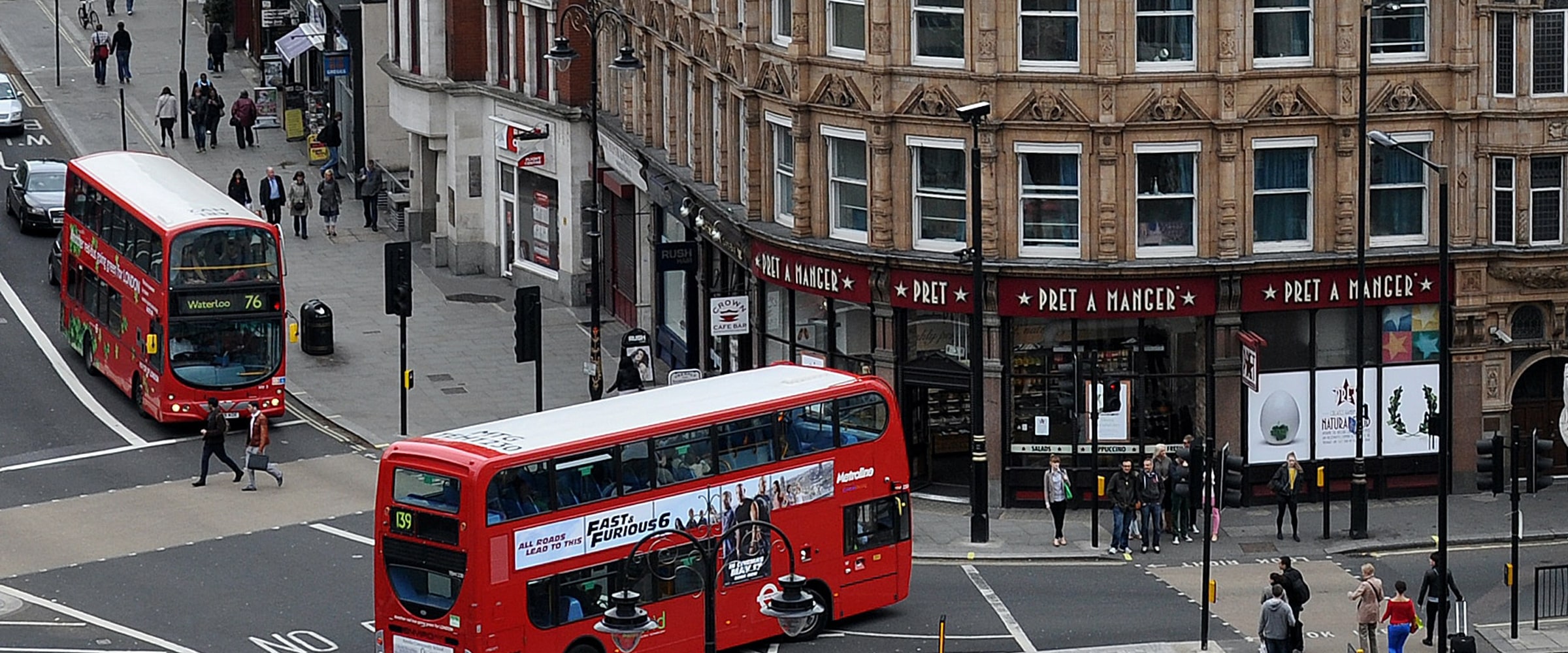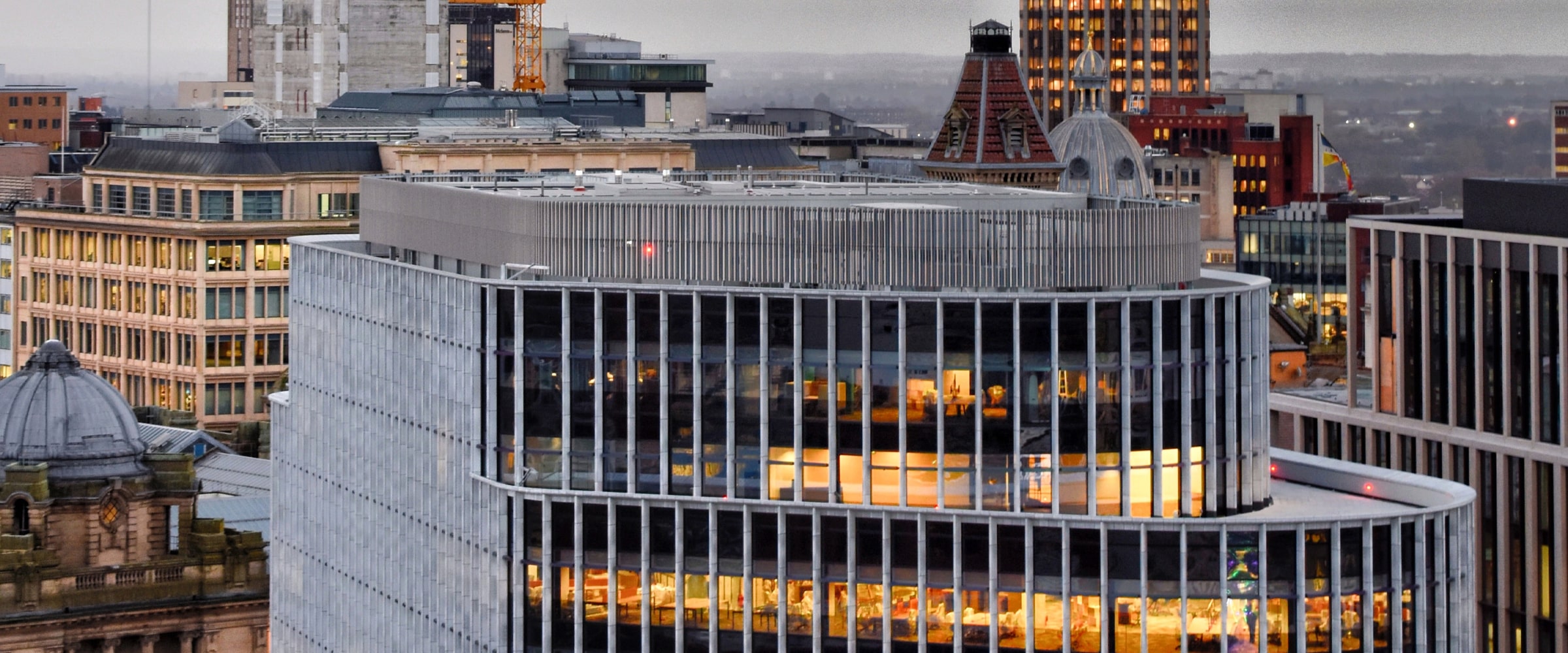
Commitments, frameworks, and industry collaboration
In response to the global climate emergency and in support of The Paris Agreement we have made the following commitments over the past three years:
2020
Signatory of the World Green Building Council’s (WGBC) Net Zero Carbon Buildings Commitment which set us on a course of developing and implementing a decarbonisation roadmap to reduce carbon emissions to net zero in all our U.K.-occupied buildings by 2030.
2021
Committed to the Science Based Targets initiative (SBTi) as part of the Business Ambition for 1.5°C coalition in partnership with the Race to Zero programme - advocating for all buildings to be NZC by 2050.
2022
Signatory of the British Property Federation (BPF) net zero pledge, supporting a real estate sector transformation to deliver net zero buildings by 2050.
Avison Young U.K.: our progress towards net zero carbon
In 2022 we launched several initiatives which are improving our impact in these areas, helping to reduce our carbon emissions and enabling better local and global citizenship. These include:
- Creation of a carbon reduction plan: This plan details our performance to date and provides information as to how we are taking steps to reduce our carbon footprint.
- Data quality: 70% of our compatible offices now have electricity Automatic Meter Reading (AMR).
- Launched a carbon literacy training program for employees, helping 167 people become carbon literate or provided carbon literacy training and achieving accredited Bronze Standard Carbon Literate Organisation standard. We continue to develop carbon literacy of our people to ensure that everyone has access to the knowledge to help them, our business and our clients understand and reduce their carbon footprint.
- Developed an occupancy and fit-out standard to guide how we select, fit out or upgrade our workplaces: Fitting out our space can contribute a significant proportion of our carbon footprint. In 2019, carbon from office alterations was greater than carbon from our annual electricity consumption. Therefore, having an occupancy and fit-out standard compatible with our net zero strategy is essential.
- Updated business travel policies to reduce travel and encourage sustainable modes of transport.
- Increased take up in our EV salary sacrifice scheme to help employees lease electric vehicles we launched a scheme in 2021. During 2022 EV take up increased by 216%.
- Adopted renewable energy tariffs where procurement is within our control or is provided by our landlords – 70% of our offices are supplied with renewable electricity tariffs.
- Upgraded our sustainability data platform to centralise data collection and reporting. 100% of Scopes 1 and 2 are now captured within the platform and is being extended to include Scope 3 data.
- Measured Scope 3 emissions in the following cateogries: purchased goods and services, capital goods, fuel and energy excluded from Scope 1 and 2, upstream transport and distribution, waste, business travel and employee commuting.
There are several energy and carbon trends which have been observed in 2022 [see emissions data table in Appendix]:
- A 53% increase in energy consumption in 2022 compared to 2021 (due in part to the Coronavirus pandemic recovery).
- Staff working from home continued in 2022 and led to further reductions in energy demand. However, we do recognise that this carbon has moved to Scope 3, not all has been saved. We will work to consider these emissions in our future reporting.
- Electricity consumption in 2022 was higher than the 2019 baseline by 2.75%.
- Gas (Heat) consumption in 2022 was lower than the 2019 baseline by 26%
- Scope 3 is where most (90%+) of our carbon emissions are located.
- Emissions from employee commuting has increased but remains significantly (53%) below the 2019 baseline year.
Our net zero strategy
Avison Young (U.K.) has committed to achieving net zero carbon emissions (Scope 1 and 2) by 2030 or earlier (2040 globally). To that end, we’re concentrating our presence in energy efficient buildings, including those that have been retrofitted or refurbished with a focus on sustainability. These steps are part of a broader decarbonization effort that extends across our operations, reshaping policies and practices in areas ranging from procurement to business travel.
Our progress to date
To date we have undertaken a range of initiatives to reduce our carbon emissions as well as planning future improvements:
We are already delivering action to cut our U.K. carbon footprint. Between 2019 and 2022, we reduced our Scope 1 and 2 greenhouse gas emissions by 24.43%.
The Company has also been working to establish Science Based Targets and are now in the process of preparing for submission and ratification. We aim to achieve this by the third quarter of 2023.
The SBTi is the world’s first science-based certification of companies’ net zero targets in line with the Paris Agreement’s goal of keeping planetary warming to 1.5°C above pre-industrial levels. Based on the SBTi approach and our current 2019 baseline we would need to reduce our Scope 1 and 2 emissions by 46.2% by 2030.

Emissions reduction
Here are just some of the projects that we have undertaken to reduce our emissions:
Smart meter roll out
To accurately measure the impact of energy efficiency projects and to manage building energy consumption, accurate metering of consumption is critical. We committed to a strategic roll-out of smart meters on sites where possible. All targeted sites had metering installed by the end of 2022. We are looking to expand metering across the estate to cover heat and water where possible.
Electric car salary sacrifice scheme
Business travel and employee commuting is one of our largest sources of carbon emissions (2nd and 3rd largest categories). In response to colleague feedback, and to support our carbon emissions, we launched an electric vehicle (EV) car salary sacrifice scheme. All eligible staff have the opportunity to lease a new electric car as part of Avison Young’s employee benefits package. We are endeavouring to capture actual data on emissions or estimate these in order to understand the impact of this policy.
Circularity and waste management
In 2022, Avison Young partnered with Collecteco to donate unwarted furniture to good causes across the U.K. Fantastic examples of this have come from our Bristol, Manchester, and Birmingham offices where we worked with Collecteco who took over 900 items of furniture off our hands which has now been kindly donated to various charities and schools. This has generated over £73,000 of in-kind funding and avoided nearly 23 tonnes of carbon in the manufacture of new furniture. This is an example of how we are delivering social value, net zero and circular economy as co-benefits of our strategy.
Maximising renewable energy use and energy efficiency
Our 17 U.K. offices run on a combination of renewable and non-renewable electricity tariffs - 70% of our sites are on a 100% renewable energy tariff. Over time we will ensure our procurement of renewable energy tariffs follows best practice in terms of quality. Moving forward, we plan to engage with all landlords where energy tariffs are controlled at a building level, seeking to transition to 100% renewable energy tariffs. As part of this engagement with building owners we are also understanding their forward plans to improve the energy efficiency of the buildings in their control, including upgrades and replacement schedules.

Empowering our workforce
Carbon literacy training
In 2022, Avison Young U.K. became a Carbon Literate Organisation. Our journey to carbon literacy involved a partnership with Elevate. Elevate created and delivered Carbon Literacy education for our employees and has provided Avison Young with a great start to creating a low carbon culture, which is essential for our journey to net zero. A key outcome of the programme was a Bronze Award from The Carbon Literacy Project. This award recognises our ongoing efforts to ensure our staff are more aware of climate change and feel empowered to take steps to reduce their carbon footprint at home and at work in their engagement with clients. In 2022, 167 people became carbon literate or undertook carbon literacy training.
Carbon mitigation and biodiversity creation
Celebrating our partnership with the Woodland Trust (2014-2022)
At the beginning of 2014, we started working with the Woodland Trust to mitigate our organisation’s unavoidable carbon emissions by planting trees in the U.K. Each tree we planted will become a vital carbon store, helping to reduce our environmental impact. The trees we planted are all native to the U.K. and will help create havens for wildlife, boost biodiversity, and absorb harmful carbon dioxide from the air. Combating climate change isn’t just about planting. The U.K. is one of the most nature-depleted countries in the world. During our eight-year partnership we also helped the Woodland Trust look after existing woodland through regular volunteering. We are proud to have been a long-term support of the Woodland Trust and look back fondly on our close partnership.
Publishing insights
Building Zero - The road to zero carbon logistics
In 2022, Avison Young launched an insights report that sets out the key pressures affecting the industrial built environment, the changes that need to be made and the cost of doing so in order to deliver the green industrial revolution. Although the cost and scale of the change required to improve the U.K.’s industrial stock is significant, there is a huge opportunity to inject value into the built environment.
Read the full report
photographed by Ayesha Kazim
of Women Photograph
Our future plans
In the near term, we plan to:
- Focus on improving carbon data and management: Quality data is key to managing our net zero strategy and we will continue to investigate and implement initiatives to improve and automate the capture of high quality carbon data.
- Undertake energy efficiency audits in our largest offices: To help drive the operational efficiency of our sites and optimise consumption.
- Maintain high fit out and occupancy standards: New offices and fitouts are not frequent but are significant to our carbon footprint when they occur.
- Address the carbon intensity of our value chain: 90%%20 of our carbon footprint is located in our Scope 3 but is the least understood and managed in our industry.
- Continue to reduce travel related emissions: Challenge the way we travel and where unavoidable, low carbon options are to be prioritised.
- Take steps to understand employee commuting and home working emissions: The COVID-19 pandemic has changed the way we work, and we need to understand how this impacts our carbon footprint.
- Submit our targets to the Science Based Target Initiative for approval and verification: Credible data and targets backed by the science are essential in achieving our Net Zero aspirations.






